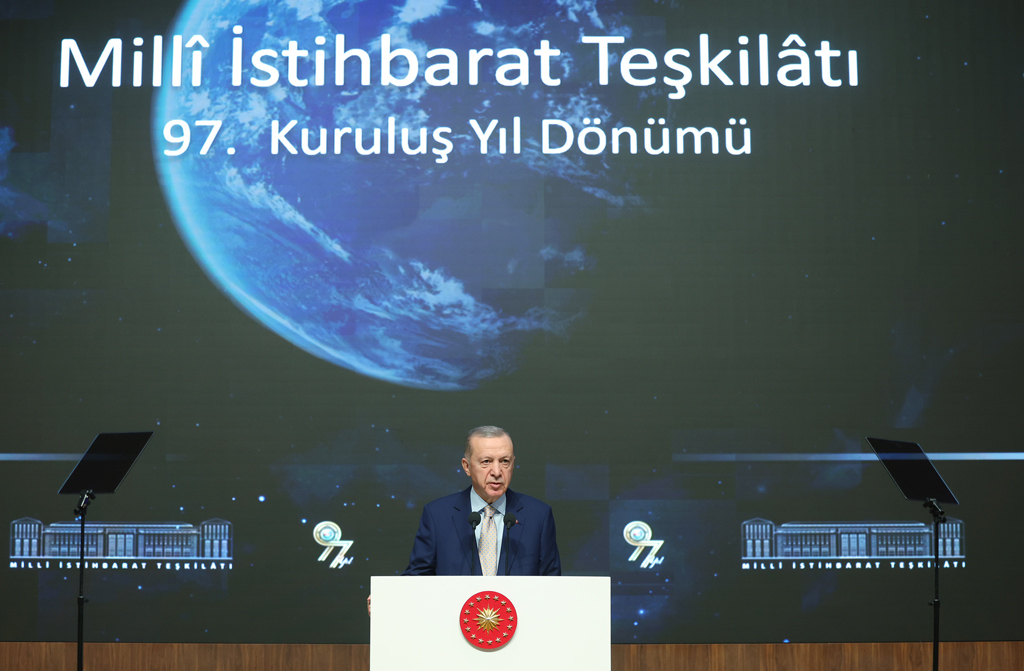
Codes of messages on 97th anniversary of MIT's establishment
To understand how Türkiye sees the world’s dangerous trends, it is crucial to go over the statements made at the National Intelligence Organization’s (MIT) 97th anniversary event.
Share
To understand how Türkiye sees the world’s dangerous trends, it is crucial to go over the statements made at the National Intelligence Organization’s (MIT) 97th anniversary event.
Here’s the summary:
Türkiye demonstrates the will to take its security policy to a new level in the age of “global uncertainty and asymmetrical and hybrid threats.”
Speaking at the event, President Recep Tayyip Erdoğan highlighted the importance of being at the heart of the global power struggle and growing uncertainty in the international system, underscoring Türkiye’s emergence as an “influential power” within the framework of its national interest.
Anticipating new risks and crises, Erdoğan notably recalled Türkiye’s active role in Syria, Iraq, Karabakh, Libya, the Eastern Mediterranean and the Black Sea. Again, the Turkish leader acknowledged the meaninglessness of the “axis shift” debate to note that the country had achieved strategic autonomy.
Erdoğan described that approach, which was a main theme of his 2023 election manifesto, as “making decisions related to domestic politics and foreign policy along the Türkiye axis.” It is that perspective that accounts for Türkiye’s ability to develop the right policies by becoming aware of growing uncertainty and future crises in the world. Again, that approach covers a broad range of issues from reassessing bilateral relations and alliances to bolstering the capacity of national institutions in line with Türkiye’s needs and interests.
The security establishment’s ability to cooperate and operate in a coordinated manner under Erdoğan’s leadership has been the driving force behind Ankara’s successful use of hard power. That is how MIT became more "civilian" to operate more effectively as its previous head, Hakan Fidan, had overhauled its jurisdiction, capabilities and capacity since 2010.
President Erdoğan’s identification of terrorism and espionage, irregular migration, radicalization, organized crime, xenophobia and Islamophobia as emerging threats was particularly noteworthy. At the same time, he delivered a striking message to foreign governments with a specific focus on Israel: Do not even think of operating in Türkiye.
Tags »
Related Articles






